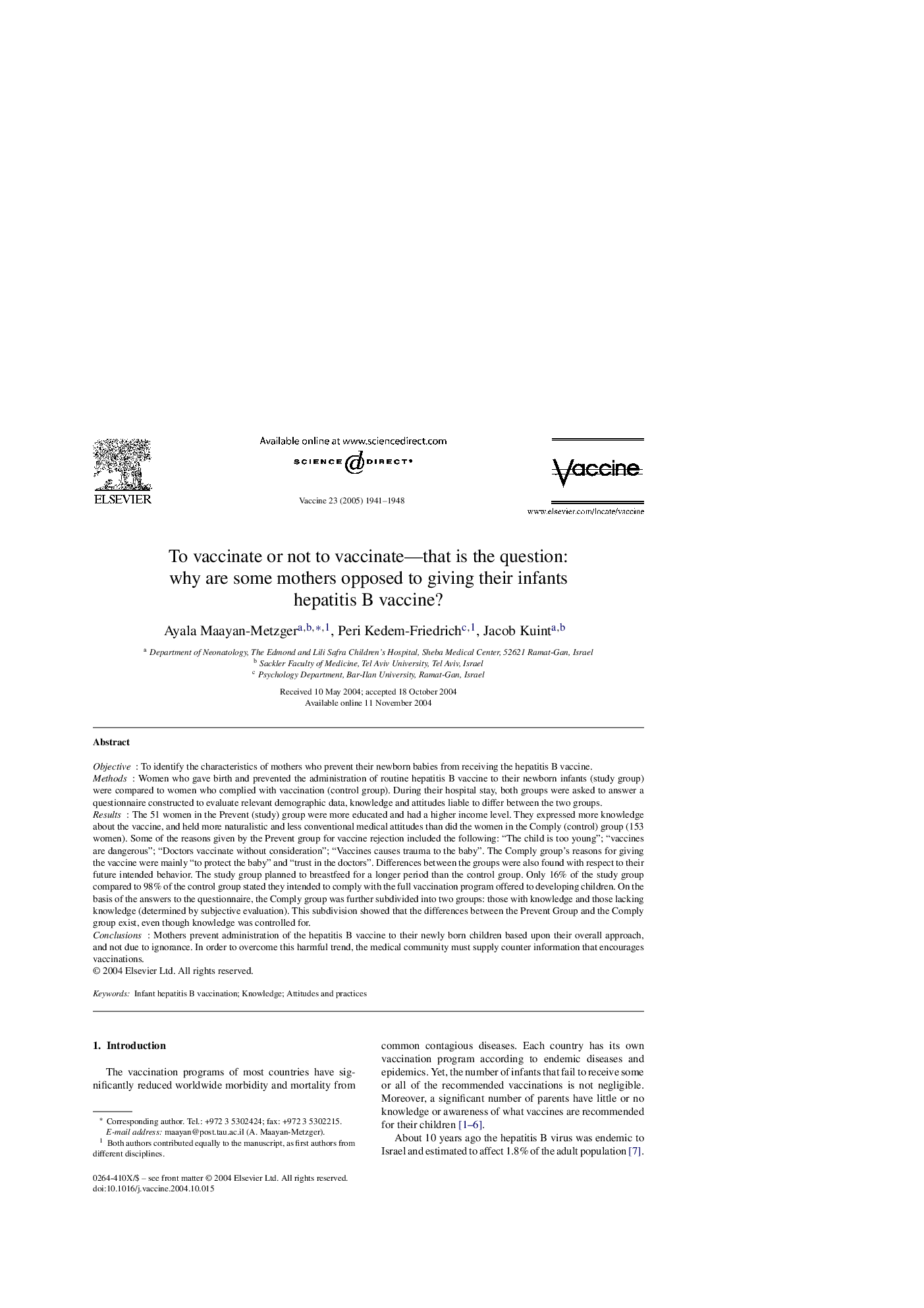| Article ID | Journal | Published Year | Pages | File Type |
|---|---|---|---|---|
| 2408812 | Vaccine | 2005 | 8 Pages |
Objective: To identify the characteristics of mothers who prevent their newborn babies from receiving the hepatitis B vaccine.Methods: Women who gave birth and prevented the administration of routine hepatitis B vaccine to their newborn infants (study group) were compared to women who complied with vaccination (control group). During their hospital stay, both groups were asked to answer a questionnaire constructed to evaluate relevant demographic data, knowledge and attitudes liable to differ between the two groups.Results: The 51 women in the Prevent (study) group were more educated and had a higher income level. They expressed more knowledge about the vaccine, and held more naturalistic and less conventional medical attitudes than did the women in the Comply (control) group (153 women). Some of the reasons given by the Prevent group for vaccine rejection included the following: “The child is too young”; “vaccines are dangerous”; “Doctors vaccinate without consideration”; “Vaccines causes trauma to the baby”. The Comply group's reasons for giving the vaccine were mainly “to protect the baby” and “trust in the doctors”. Differences between the groups were also found with respect to their future intended behavior. The study group planned to breastfeed for a longer period than the control group. Only 16% of the study group compared to 98% of the control group stated they intended to comply with the full vaccination program offered to developing children. On the basis of the answers to the questionnaire, the Comply group was further subdivided into two groups: those with knowledge and those lacking knowledge (determined by subjective evaluation). This subdivision showed that the differences between the Prevent Group and the Comply group exist, even though knowledge was controlled for.Conclusions: Mothers prevent administration of the hepatitis B vaccine to their newly born children based upon their overall approach, and not due to ignorance. In order to overcome this harmful trend, the medical community must supply counter information that encourages vaccinations.
